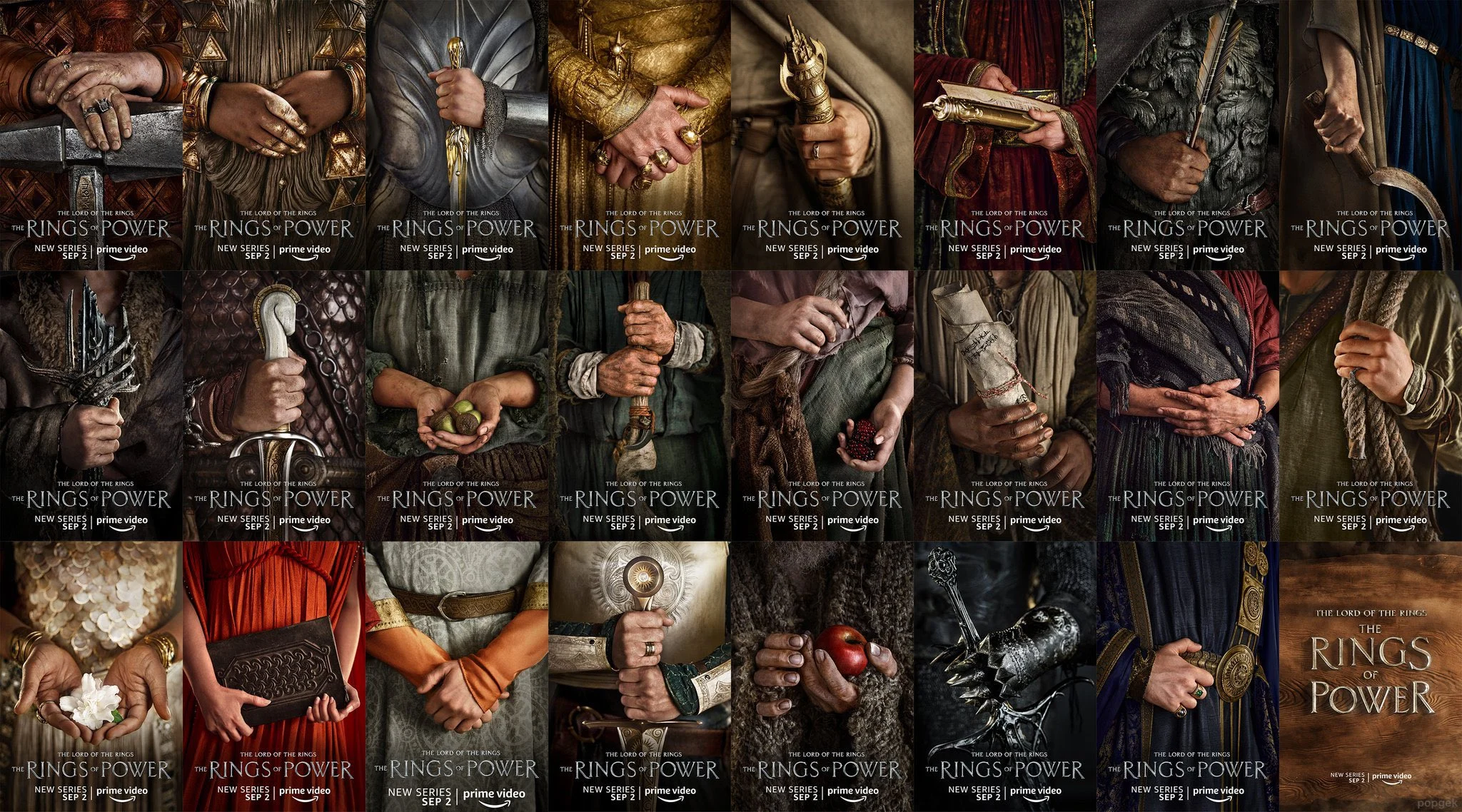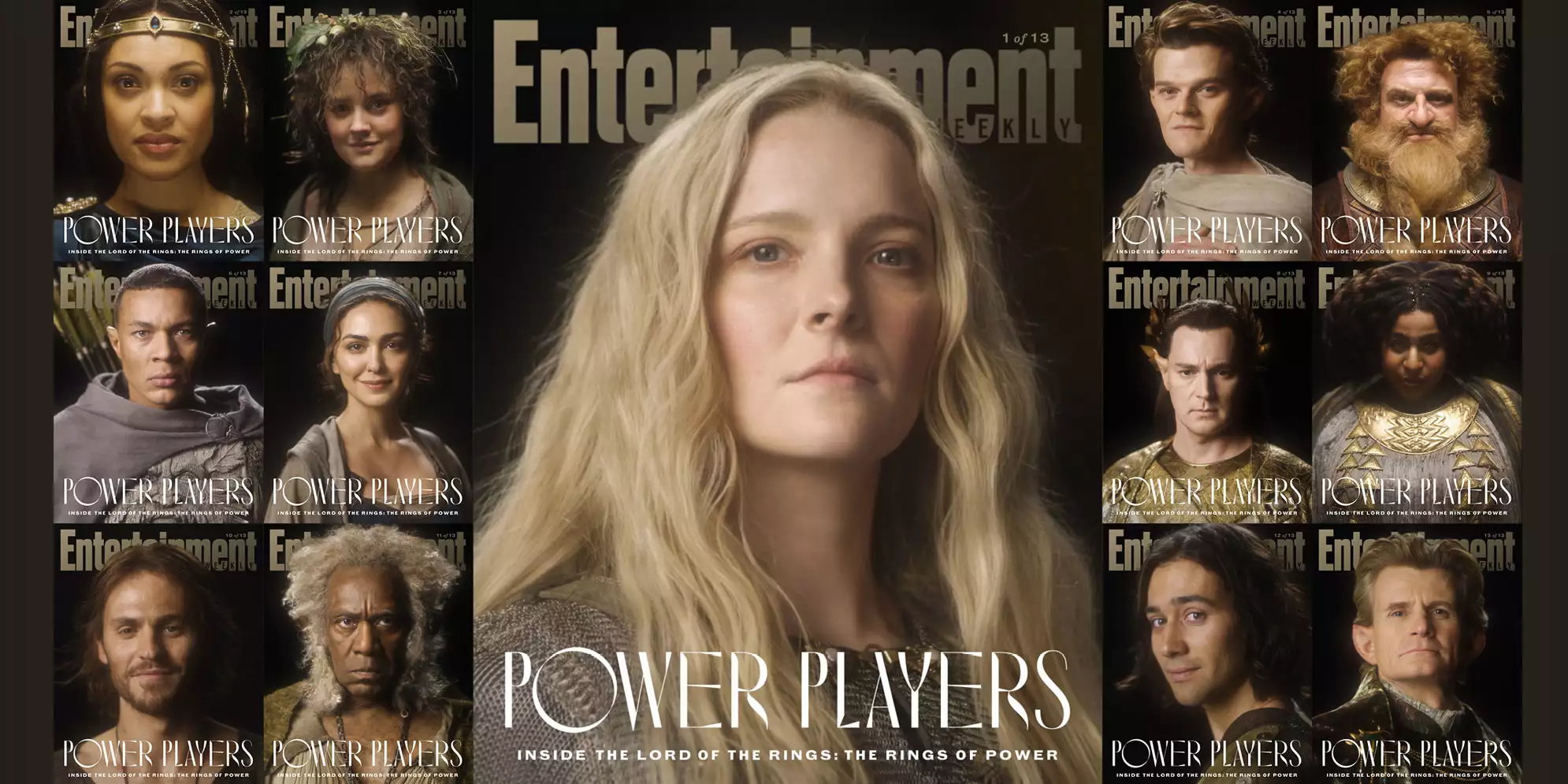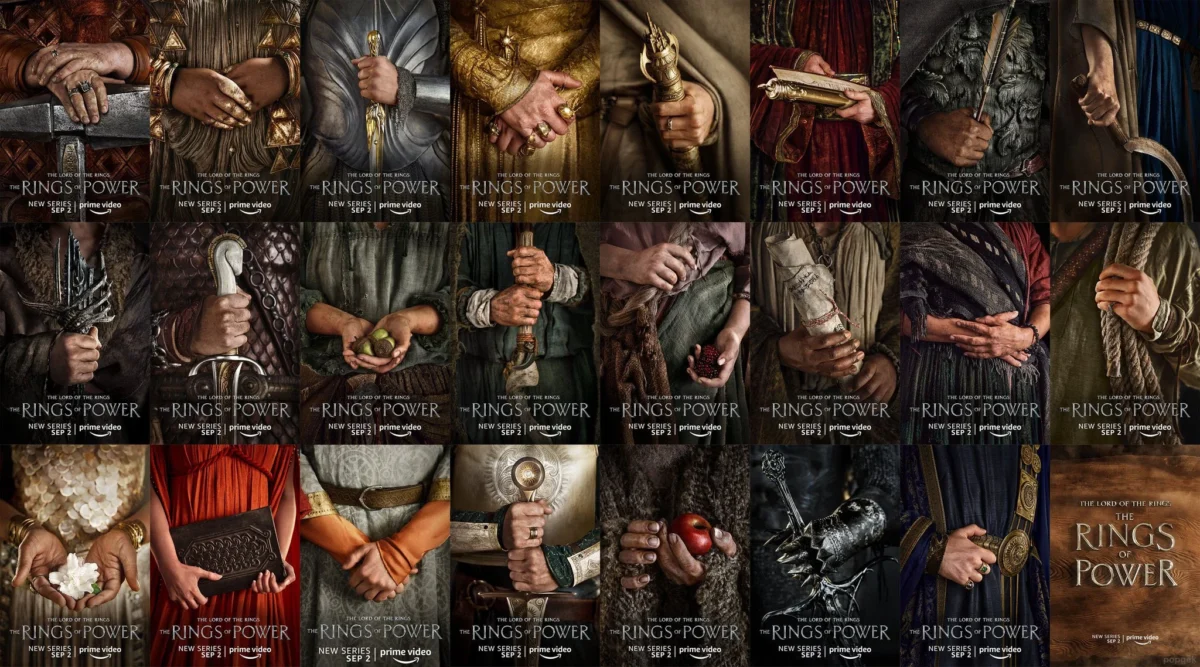All right, here’s the Number One Question that is burning in the heart of every fanboi out there: Was this series absolutely necessary?
No. Of course not. No TV series is “absolutely necessary.” And, honestly having lived in Prof. Tolkien’s head for nearly half a century, I can say that I would have survived if we had never gotten a visual study of the Second Age (as adapted and time-compressed for television).
That said …

I’m enjoying it
I enjoyed the first two episodes of “The Rings of Power.” The adaptations for “Let’s put all the exciting stuff of the Second Age into a single cast of characters that isn’t all-elvish, kind of like Tolkien did for the Third Age” are, so far, fine. I like the characters introduced, both known and unknown. And the FX were quite suited for a billion dollar investment/adaptation.
I can easily be a pedantic purist. But I also tend to accept what is presented to me and evaluate it for what it is, not against some Platonic ideal of the True Tolkien Story. Given the number of renditions of the tales that Tolkien himself did, that seems like a wise starting place.
The status quo we begin with is fascinating, and highlights something that LotR fans usually forget: the Elves are just as culturally flawed and personally prone to error as any random Human, Dwarf, or Halfling. In LotR, we focus on the top-tier Elvish Elders (Elrond, Galadriel, and, yeah, Mr. Galadriel Celeborn), or on the Elvish Super-Hero, Legolas.
But the First (especially) and Second Ages are full of Elves making horrible, monstrous, myth-making and realm-dooming mistakes of vanity and hubris and obsession. RoP gives us those Elves (including, ironically, Elrond and Galadriel), driven by their passions, their griefs over the First Age conflicts, their prejudices, their obsessions, their flaws.
That some of them (Galadriel) are correct in their concerns is not important. That they are not all spouting off profundities and hand-washing, mournful platitudes is.
I am quite satisfied by what we have seen so far, even if we have literally burned through 25% of S.1’s episodes in still setting up the situation. The show has a five year plan (they know precisely what the final scene will be), though only two seasons have been purchased.
Threads
There are a lot of threads in the air. Here are a few:

Galadriel
Those who know their G-elf lore know that Galadriel was kind of a crazy rebel in the First Age and (OMG THE FIRST AGE IMAGES OMG) she is still now obsessive over the threat of Sauron. (And, yeah, she’s right, but is right in a wrong way.) Who has rescued her and boytoy Harbrand from the ocean (my bet is it’s Numenorean folk, kicking off that whole part of the storyline)? What will Gil-Galad’s reaction be when he discovers that Galadriel has given a hard pass on his “gift” of return to Valinor? How does she end up getting one of the Three Rings for Elven-Kings under the Sky?
Valinor
In the canonical Tolkien, the Elves rebelled in heading off to Middle-Earth from Valinor, in sort of a Garden of Eden sort of thing, in angry pursuit of Melkor/Morgoth and the Silmarils. And, as I recall, those Noldor Elves were originally banned from returning for their presumption of leaving it in the first place. I don’t know the specific moment that Elves were allowed to go back (let alone the non-Noldors), but having it show up here as a “gift” that the Elven High King can grant is … interesting.
Elrond
Elrond is part of one of the two cases that are mentioned elsewhere in Ep. 1 of Elf/Human — the son of Eärendil and Elwing. Born in the First Age alongside a twin brother Elros. At the end of the First Age, both brothers were given a choice as to what heritage they would become. Elros chose Human and was the first king of Numenor. Elrond chose Elf, and stuck around for a lot longer.
I almost thought they were going to refer to that early on when there was the “Yeah, you’re not an elf-lord” thing going on. I hope they eventually make it clearer, because it’s a key part of what makes Elrond who he is, and also really informs his attitude toward his daughter Arwen hooking up with the Human (and distant descendent through the lines of Numenor) Aragorn.
I don’t mind Elrond being an aspirational flunky for Gil-Galad, because he was. I don’t mind the difference between LotR Elrond and RoP Elrond because it’s three thousand years ago. Galadriel had mellowed. Elrond has gotten cranky. So be it.
Durin
I trust that, unlike in Pulp Fiction, we’ll see what’s in the box that Durin and his dad look into. My assumption is that it is some of the first mithril mined by the Dwarves, which will in turn prompt them to delve too deeply and unwisely. Will we see the unveiling of Durin’s Bane (the Balrog of Khazad-Dum) during the course of this series? I am absolutely certain we will.
I loved the “living” Khazad-Dum, by the bye.
Nori (and the Stranger)
So the Harfoots fit okay into the origins of Hobbits that Tolkien gave us, and their elusiveness reminds me of his discussion of how, in the Fourth Age (of Man) they gradually faded into the background, invisible from our sight. Nori as the rebel who wants to see the world amidst the village that wants to stay secret and safe is not a new trope, but it’s done well here, with her friend/foil Poppy giving us the conflict externally that a book might do internally.
Of course, the key with Nori is her finding and caring for the Stranger. Who is he?
Sauron (as a falling Lucifer from the skies, I guess) is an obvious and ironic guess — esp. after the whole firefly stunt and its aftermath — in which case, wanna bet that those constellations are visible in, say, Mordor?
But almost as likely is that we’re seeing one of the first Istari — the Wizards — sent down from the heavens. Yeah, the timing doesn’t fit with Tolkien’s canon, and the Istari showed up from Valinor at the Grey Havens, but we already know that dramatic license is being taken, so why not?
Of course, if it’s an Istar, then as the (presumed) first, it would be Saruman. And, as my son said, it would all be worth it in order to see Saruman eat a snail.
But if it were Gandalf, that would explain his fondness for Hobbits all these centuries later.
I am eager to learn (or to see how long they drag out the uncertainty).
Arondir and Bronwyn
So there are a lot of folk who see racism in some of Tolkien’s work. And, yeah, when he deals repeatedly with purity of white bloodlines, literally describes Orcs as a “Mongol race,” and has various Arabic and African humans ally themselves with the Super Bad Guy, that argument (about a Brit who was born and lived as a kid in South Africa) is not too difficult to make.
But Tolkien also talked about conflict between the different races/species in Middle-Earth. The most famous was the conflict between Elves and Dwarves, but the disdain of the Elves for Humans was also there: short-lived, vain mortals who were easily corruptible in exchange for promises of power.
It is absolutely believable that the Elves would maintain an active watch and suppression of Humans who had allied with Morgoth in the First Age. And absolutely believable that those Humans multiple generations on would resent that.
The delicate balancing act of racism in fantasy is that (a) it presupposes actual separate races/species in the fantasy world, which is a legit thought exercise but also mirrors historic racist tropes that different human “races” are similarly distinct — that Whites vs Blacks vs Yellows vs Reds are a real a thing as Humans vs Elves vs Dwarves vs Hobbits.
(The same thing comes up in science fiction, as multiple species interact.)
I don’t know that Arondir and Bronwyn’s relationship is believable, to the extent that we really haven’t seen much of what led to it or what it actually is in the present. But it’s a completely legit thing to play with in this world.
Oh, yeah, diversity
When nobody cares about the ethnic background of actors in an adaptation of a fantasy like this, that will be the proper time to say, “Oh, all Elves are white, and all Dwarves are white, and all important Humans are white, and probably all Halflings are white” and stage that as an experimental art film.
Until then, I really don’t care.
In sum …
I’m enjoying RoP, even as it sets up multiple storylines that have taken at least two (and likely even three) of eight episodes to start progressing. I am curious to see where they are going. They have not presented me with anything that I cannot deal with, and I really want to see what they do next.

Reading comments on Rotten Tomatoes:
Any comments about elvish “wisdom” demonstrate that the writer never read The Silmarillion.
Your discussion on the creative liberties taken in this adaptation and how it fits within Tolkien’s vast universe is thought-provoking. Your candid approach and genuine curiosity about where the series will lead are refreshing, reflecting your dedication to the subject matter.